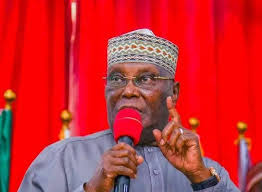News
First Lady Renames Women Centre After Maryam Babangida

The First Lady, Senator Oluremi Tinubu, yesterday, immortalised Mrs Maryam Babangida, the late wife of the former military President, by renaming the National Centre for Women Development (NCWD) after her.
The First Lady, who commissioned the former National Women Development Centre as Maryam Babangida National Centre, also unveiled her First Lady’s portrait and a compendium of activities of the First Lady and Wives of Governors of Nigeria 2015-2023.
She extolled the sterling contributions of late Maryam to the lives of ordinary Nigerians, describing her as a matriarch who has impacted women, especially those in rural areas and in Africa as a whole.
“Her Excellency, the late Maryam, was an icon who redefined the scope of women’s participation in national development and through her pet programme Better Life for Rural dwellers touched ordinary lives especially at the rural areas.
“I am happy that I was part of the ninth National Assembly Senate when the bill for the renaming of the centre was passed and assented into law”.
The Vice President’s wife, Hajia Nana Shettima, two sons of late Maryam Mohammed and Amino Babangida, The Director General of the centre, Dr Asabe Bashir, the Permanent Secretary, Federal Ministry of Women Affairs Monilola Udoh were among the dignitaries that graced the occasion.
Udoh said the bill for the change of name was passed by the Senate on March 29, 2023, while the House of Representatives passed the same on April 5, 2023.
According to her, the renaming is in line with the amendment of the National Centre for Women Development Act, Cap. N15, Laws of the Federation of Nigeria, 2004, to enhance the functions of the centre.
She said: “The government under the last administration of President Muhammadu Buhari, approved the bill by assenting to it in May 2023.
“By this information, we want our esteemed partners, the general public and indeed the media personnel to take note of the changes and help publicise it to the nooks and crannies of Nigeria and even beyond.”
The Director-General of the centre, Asabe Vilita-Bashir, noted the huge contribution of the late First Lady, especially her “Better Life for Rural Women” project, which impacted the lives of women nationwide.
“Maryam Babangida is someone that Nigerian women will not forget and we are doing this to encourage other women leaders to emulate her virtues, commitment and support to women.
“This will serve as an inspiration to all women in leadership positions to do more for Nigerian women and will be recorded by history,” she said.
Chairman of the Implementing Committee for Infrastructure and Renaming of the centre, Moji Makanjuola, said: “Renaming of the centre is significant for women. There is something that should remind us about yesterday to enable us to do our today better.
“We need to start putting history into perspective, if we don’t do that, we will lose sight of who we are as a people, country, nation and tribe.
“What has been achieved here is that collectively, Nigerian women spoke with one voice that we want a change that will give us a focus on what we are doing as women in development.
“I pray that the centre expands beyond where we are today and it will be a citadel of hope for the Nigerian women and indeed black women around the world.”
Also, Hajiya Aliyu, a beneficiary of the late Maryam Babangida’s programe, “Better life for Rural Women”, said the renaming of the centre was apt in recognition of its impacts on the lives of Nigerian women.
“This will remind people and other first ladies that are coming to do better than her and not to come and go after several years without doing anything for the Nigerian women.
News
Police Rescue Kidnapped Victim, Recover Stolen Vehicle

Operatives of the Edo State Police Command have rescued one Osazee Okugbowa from suspected kidnappers.
Moses Yamu, the command’s spokesperson, disclosed this in a statement yesterday, stating that the victim was rescued by operatives of Ologbo Division, Ikpoba-Okha Local Government Area, on Friday, 8th February 2025, at about 5 pm.
Yamu said the victim was kidnapped on 7th February, 2025 by five armed men from his residence in the presence of his family in the Power Line area of Owanoba community.
He stated that the victim had since been reunited with his family after receiving medical attention.
He, however, added that the command is on the trail of the suspects in a bid to arrest them.
Meanwhile, Yamu disclosed that the command has recovered a silver-coloured Toyota Yaris with registration number 535 DR, which was snatched from its owner at gunpoint at Upper Mission Road Extension in Benin City.
He said the car was recovered by operatives of the Okuaihe Division in Uhunmwonde Local Government Area, following a distress call received on 6th February 2025.
He added that the operatives intercepted and pursued the car snatchers, who abandoned the vehicle at Iguomon Community along the Benin-Agbor Road.
Yamu said the car has been handed over to its owner while efforts are ongoing to identify and arrest the suspects.
News
Soludo Rebagged FG Rice Shared To APGA Members-APC

The All Progressives Congress, APC, in Anambra State has protested the dominance of the Chukwuma Soludo-led All Progressives Grand Alliance, APGA, in the affairs of the President Bola Tinubu-led Federal Government.
The party chairman in the state, Mr Basil Ejidike while speaking at the weekend said the dominance of Soludo in affairs that concern Anambra even at the federal level has become a challenge to the state chapter of the APC.
He said all appointments coming to Anambra from the Federal Government had nominees from APGA, while even rice distributed to all states to cushion the effect of hardship had Anambra’s share rebagged with the picture of the governor and distributed to only APGA members last Christmas.
Appealing to Tinubu, Ejidike said, “Sir, may I seize this opportunity to draw your attention to some challenges confronting the APC in Anambra State, that require your kind intervention.
“The issue of appointments made by the Federal government without recourse to the party is inimical to the growth and success of the party in our state, as these appointees do not reckon with the party at the state level.
“Whereby, most of those who have made and are still making heavy sacrifices for the party have not been adequately rewarded and appreciated, many of those who have gotten juicy Federal Government appointments in the past were mainly non-party members, drawn especially from our rival All Progressives Grand Alliance (APGA).”
He said the trend has not served as a source of inspiration or motivation to party members, and is threatening its strength and enthusiasm of emerging victorious in the Anambra 2025 project.
“At the ward, local government and state levels, our members are being discriminated against, as APGA does not recognize or reckon with those who are not their members in the distribution and allocation of government appointments and incentives.
“More worrisome is the fact that what we as a state get from the federal government as incentives and palliatives are usually sent through the state government.
“Sequel to the above, non-APGA members are denied access to them. It is on record that bags of rice sent as palliatives by the federal government were repackaged, and Governor Soludo’s pictures and APGA logo embossed on those bags, thereby giving the impression that they were provided by the governor.
“This arrangement has continued to diminish our party’s influence and reach within the state, and we are terrified to say the least.
“APC in Anambra have come with a passionate appeal, asking that you (Ganduje) intervene and save our members in Anambra from neglect.
“Your kind intervention, Sir, will bolster the morale of our committed party men and women towards the task ahead,” he added.
News
2025 Budgets: I Hope Snake, Monkey Won’t Swallow This One-Atiku

Former Vice President of Nigeria, Atiku Abubakar, has cautioned against the misappropriation of funds allocated to the health sector in the 2025 budget, referencing past bizarre claims of animals—such as snakes, termites, gorillas, and monkeys—being blamed for missing public funds. He stressed that such absurd incidents must not be allowed to happen with resources meant for healthcare.
Amid dwindling resources and reduced external support for healthcare services, Abubakar emphasised the need for transparency and accountability in the government’s $1.07 billion budgetary appropriation for the health sector. He called for mechanisms to ensure public audits and proper utilization of every kobo earmarked for healthcare.
The former vice president specifically questioned the government’s failure to provide a detailed breakdown of how it intends to spend over a billion dollars in the primary health sector. He noted that while investment in primary healthcare is crucial for providing Nigerians with accessible and affordable medical services, it would be unethical for the government to allocate such a significant sum without disclosing its intended use.
“The Federal Government has announced plans to spend a whopping $1.07 billion in the primary health sector, in addition to the N2.48 trillion initially proposed for healthcare in the budget,” Abubakar noted.
“What is even more concerning is that this additional funding is largely sourced from foreign loans, with a small portion coming from an international donor agency. Since these loans must be repaid, Nigerians have the right to know the full details and ensure that the expenditure is transparent and well-justified,” he added.
Abubakar further criticized the government for failing to commit to any physical infrastructure projects within the health sector, suggesting that this raises red flags about potential mismanagement or fraud.
According to the government, the funds will be used to improve governance in healthcare and strengthen primary health services nationwide, including recruitment, training, and retention of healthcare workers and teachers. However, Abubakar argued that the government has a poor track record in managing public funds, particularly in humanitarian services, and that Nigerians should not accept vague explanations without clear accountability mechanisms.
“It is difficult to trust this administration’s claims, especially given its history of misleading Nigerians about investments in social infrastructure,” he said.
He pointed out the government’s misleading statements about improvements in tertiary hospitals, despite the reality that many of these institutions lack basic amenities, such as stable electricity supply.
“The Tinubu administration has failed in the health sector due to poor funding. Major diseases in primary healthcare, including malaria, tuberculosis, and HIV/AIDS, remain critical challenges. If this government is truly committed to healthcare, it must clarify how it plans to use this intervention fund to tackle these diseases,” Abubakar stated.
He also criticized the government’s response to the recent withdrawal of American aid for HIV/AIDS treatment, noting that its proposed intervention of N5 billion is grossly inadequate.
“If the Tinubu administration does not present a clear framework for managing this significant health sector investment or subject it to proper legislative scrutiny, then it may be safe to conclude that this is yet another case of public funds being mismanaged under the guise of serving Nigerians,” Abubakar concluded.
-

 Sports2 days ago
Sports2 days agoChelsea Fall Short Against Brighton
-

 News2 days ago
News2 days agoNigeria, Venezuela Explore Mining Opportunities
-

 Politics2 days ago
Politics2 days agoAhead 2027, Obidient Movement Engages Stakeholders In Borno
-
Maritime2 days ago
Navy Rids Calabar Waterways Of Piracy, Oil Bunkering
-

 Sports2 days ago
Sports2 days agoA’ Ibom’s Ready To Host Niger Delta Sports Festival-Eno
-

 Oil & Energy2 days ago
Oil & Energy2 days agoNNPC Debunks Explosion Claim In Warri Refinery
-

 Rivers2 days ago
Rivers2 days agoNAFDAC Destroys N4.7bn Worth Expired, Substandard Products In Rivers
-

 Sports2 days ago
Sports2 days agoCity’s January Spending Propelled By Fears Of Transfer Ban?

